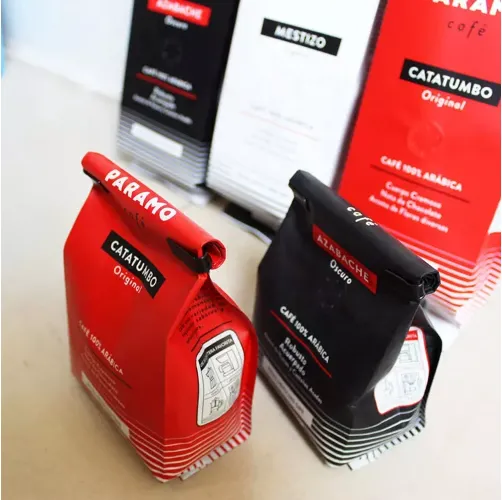- Afrikaans
- Albanian
- Amharic
- Arabic
- Armenian
- Azerbaijani
- Basque
- Belarusian
- Bengali
- Bosnian
- Bulgarian
- Catalan
- Cebuano
- chinese_simplified
- chinese_traditional
- Corsican
- Croatian
- Czech
- Danish
- Dutch
- English
- Esperanto
- Estonian
- Finnish
- French
- Frisian
- Galician
- Georgian
- German
- Greek
- Gujarati
- haitian_creole
- hausa
- hawaiian
- Hebrew
- Hindi
- Miao
- Hungarian
- Icelandic
- igbo
- Indonesian
- irish
- Italian
- Japanese
- Javanese
- Kannada
- kazakh
- Khmer
- Rwandese
- Korean
- Kurdish
- Kyrgyz
- Lao
- Latin
- Latvian
- Lithuanian
- Luxembourgish
- Macedonian
- Malgashi
- Malay
- Malayalam
- Maltese
- Maori
- Marathi
- Mongolian
- Myanmar
- Nepali
- Norwegian
- Norwegian
- Occitan
- Pashto
- Persian
- Polish
- Portuguese
- Punjabi
- Romanian
- Russian
- Samoan
- scottish-gaelic
- Serbian
- Sesotho
- Shona
- Sindhi
- Sinhala
- Slovak
- Slovenian
- Somali
- Spanish
- Sundanese
- Swahili
- Swedish
- Tagalog
- Tajik
- Tamil
- Tatar
- Telugu
- Thai
- Turkish
- Turkmen
- Ukrainian
- Urdu
- Uighur
- Uzbek
- Vietnamese
- Welsh
- Bantu
- Yiddish
- Yoruba
- Zulu
Leading Brands in the Packaged Food Industry You Should Know
The Evolution and Impact of Packaged Food Companies
In the modern era, the way we consume food has undergone a radical transformation, primarily due to the rise of packaged food companies. These companies have redefined the landscape of diet and convenience, playing a crucial role in shaping our lifestyles and eating habits.
The Rise of Packaged Food
The origins of packaged food can be traced back to the industrial revolution when food preservation techniques began to evolve. Canning, pasteurization, and refrigeration laid the groundwork for the mass production of food items. Today, companies such as Nestlé, Unilever, and Kraft Heinz dominate the industry, providing consumers with a plethora of options that are easily accessible and convenient. With the fast-paced lifestyle of modern society, packaged foods offer a solution to the decreasing time people have to prepare meals.
Convenience and Accessibility
One of the primary advantages of packaged food is its convenience. Ready-to-eat meals, snacks, and beverages can be found in nearly every store worldwide, catering to the needs of busy individuals and families. For instance, frozen dinners, instant noodles, and packaged salads have become staples in many households, allowing people to enjoy a meal without the need for extensive preparation or cooking. This ease of access has made it possible for consumers to maintain a balanced diet, even when their schedules are packed.
Innovations in Packaging and Preservation
Packaged food companies have also taken significant steps in innovating packaging techniques. Advanced technologies such as vacuum sealing, modified atmosphere packaging, and vacuum-packing have extended the shelf life of products and minimized food waste. These techniques not only preserve the quality of food but also reduce transportation costs and environmental impact. Furthermore, many companies are investing in sustainable packaging options, moving away from plastics toward biodegradable materials, in response to growing environmental concerns.
Nutritional Quality and Health Trends
packaged food companies

Despite the convenience offered by packaged foods, there are growing concerns regarding their nutritional quality. Many packaged foods are high in additives, preservatives, and unhealthy fats, which can contribute to various health issues, including obesity and heart disease. As a response to consumer demand for healthier options, many packaged food companies are reformulating their products to reduce sugar, sodium, and unhealthy fats. The trend towards healthier packaged options has led to the rapid growth of categories such as organic snacks, plant-based meals, and gluten-free products.
The Role of Marketing
Marketing strategies employed by packaged food companies also play a significant role in consumer choices. Companies invest heavily in advertisements to promote their products, often using slogans and imagery that highlight convenience, taste, and nutritional benefits. The rise of social media has amplified these marketing efforts, allowing companies to reach target demographics with tailored campaigns. Influencers and food bloggers often showcase packaged foods, further driving consumer interest and sales.
Challenges and Future Outlook
Despite their success, packaged food companies face several challenges. Increasing regulatory scrutiny regarding health and labeling practices presents hurdles for manufacturers. Additionally, the shift towards home cooking, driven by events like the COVID-19 pandemic, has sparked a resurgence in interest in fresh, unprocessed foods. Consequently, companies are exploring ways to adapt, focusing on transparency, sustainability, and quality.
Moreover, as consumers become more educated about nutrition and health, packaged food companies must stay ahead of trends and be ready to innovate. The future will likely see a further emphasis on health-conscious products and sustainable practices, ensuring that packaged food can remain a relevant part of our diets.
Conclusion
In conclusion, packaged food companies have significantly impacted our food consumption patterns, offering convenience and accessibility in a fast-paced world. As the industry continues to evolve, the challenge will be to balance convenience with nutrition and sustainability, ensuring that packaged foods can meet the demands of modern consumers while promoting a healthier lifestyle. As we navigate this changing landscape, the role of packaged food companies will undoubtedly remain influential in our culinary choices.













